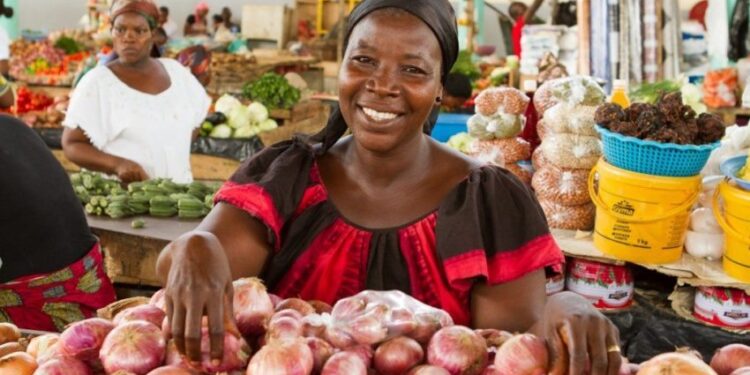Ghana’s inflation rate fell to 52.8 percent in February, down from 53.6 percent in January.
The is the second consecutive time that the figure has dropped in 20 months.
Samuel Kobina Annim, Government Statistician for Ghana, announced this while speaking with journalists on Wednesday.
He said the prices for the February 2023 inflation rate were collected from 47,877 products from 57 markets across the 16 administrative regions of Ghana.
Annim said the reduction is a confirmation of a sustained downward trend in the rate of inflation for the year.
“The slowdown in food caused the rate to fall,” he said.
Annim said food-price growth eased for the first time in more than a year to 59.1 percent from 61 percent in January, with non-food inflation unchanged.
He said that transport recorded an inflation rate higher than the national rate, followed by furnishings and household equipment, housing, and food.
“At the 13 division level it will be recalled that five items recorded the highest rates more than the national rate of 52.8 percent, with transport leading with 70.3 percent for the month of February 2023,” he said.
Recently, the Ghana National Petroleum Authority (NPA) announced that it has removed fuel subsidy to ensure stability across the country’s downstream sector.
“We have removed subsidies and deregulated our markets,” Abdul Hamid, chief executive officer of NPA, had said.
“Industries were shutting down because government was finding it hard to find the money to provide subsidies and to this day industry is being powered by investments in the private sector and there are no complains of supply.”











